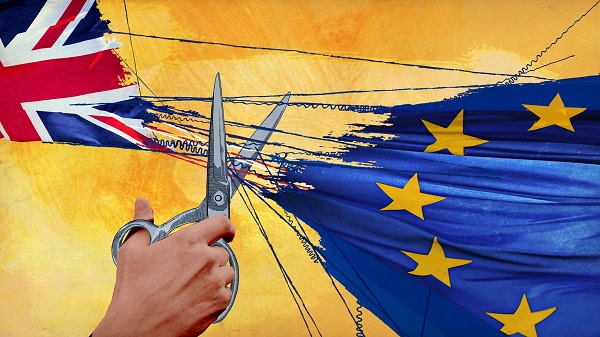Leave camp still ahead in fundraising stakes

Roula Khalaf, Editor of the FT, selects her favourite stories in this weekly newsletter.
The campaigns for Britain to leave the EU have continued to raise more than their rivals, according to the latest data on donations from the Electoral Commission.
Leave campaigners raised just shy of £4m between May 13 and June 9, nearly £1m more than the Remain camp.
Adding up individual donations of more than £7,500, Leave has collected £16.2m since the beginning of February compared to the £12.1m raised by Remain.
Donations to Brexit groups have been split across several camps. Vote Leave, the official campaign, has received £9.5m since the beginning of February, while the Arron Banks-backed Leave. EU and Grassroots Out has raised £5.5m.
The largest donation to the Leave campaign was from Diana Van Nievelt Price, who gave £1m to Vote Leave.
According to the Sunday Times, Ms Van Nievelt Price is a Conservative party donor and a former director of a Midlands-based manufacturing company. The largest donation to Remain was from the travel company Trailfinders.
A spokeswoman for Trailfinders insisted it was a personal donation by owner Mike Gooley, a former SAS soldier and Conservative donor. “It is his personal choice and is not on behalf of the company,” she said.
Separately, it was reported by BuzzFeed on Wednesday that Gladys Bramall, a former director of Birmingham tool-hire company Construct-Equip who gave £600,000 to Vote Leave earlier this year, had been a member of the far-right British National party.
Ms Bramall’s name appears on a BNP membership list dating from the mid-2000s published by WikiLeaks. She said she was signed up to the party by her husband without her knowledge and that she was “very anxious that we come out of Europe”.
Since February, the largest individual donor to Leave is Peter Hargreaves, founder of financial advisory firm Hargreaves Lansdown, who has given £3.2m. The biggest donor to Remain is David Sainsbury, who has given a further £313,560 since mid-May, taking his total to £3.5m.
The Electoral Commission data were released as both sides of the campaign geared up for a final push to get the message from their business supporters across. Sir Richard Branson, who said he was launching a national pro-Remain campaign, wrote an open letter with a personal slant on the business case for staying in the EU.
Unlike his father and grandfather, Sir Richard said, “I represent the first generation of my family not to go to war in Europe.”
“Any global threats facing British citizens young and old, such as climate change, financial crisis or conflict, are better addressed collectively,” the letter continued.
Meanwhile, the general secretary of the TUC, Frances O’Grady, and Terry Scuoler, chief executive of the EEF, Britain’s manufacturing employers’ organisation, warned jointly that leaving the EU would be a “terrible gamble” and risked a decline in manufacturing trade.
“Employers and workers up and down the land — 1.7m jobs in manufacturing alone — depend on EU trade,” they said.
“We hope there will be a renewed focus in the remaining days of the campaign on the economic reality of the decision voters will make on June 23, and its impact on them as working people and on the businesses that employ them.”
Although the current heads of Britain’s supermarket chains have been wary of speaking out on the referendum for fear of alienating customers or staff, on Tuesday the former bosses of Tesco, J Sainsbury, Marks and Spencer, Asda, Waitrose, Wm Morrison and B&Q warned that prices would rise if Britain left the EU.
“We have spent the last few decades building very strong supply chains with the EU, which are fully integrated in order to deliver better quality, choice and value for the UK consumer,” wrote the former retailers, who included Sir Terry Leahy, Justin King, Marc Bolland, and Ian Cheshire.
On Tuesday evening, the Times planned to publish a letter supporting continued membership of the EU and signed by hundreds of supporters from the business community.
The role of big business has been a controversial topic during the referendum campaign, with Leave campaigners suggesting voters should reject messages from the establishment, and others accusing company bosses of ducking their responsibility to speak out.
Matthew Elliott, the chief executive of Vote Leave, said “lobbying” by the TUC and the EEF should be taken with a pinch of salt.
“We know that big multinationals feel the benefit of EU membership, but British people suffer the consequences of uncontrolled migration — with unsustainable pressure on public services, downward pressure on wages, and an erosion in working conditions,” he said.
Under the EU Referendum Act 2015, registered campaigners must complete four pre-poll reports setting out what donations and loans they have received of more than £7,500 between February 1 and June 22. Campaigners must register with the Electoral Commission if they intend to spend more than £10,000 to support a particular outcome.
————————-
UK’s EU referendum: full coverage and analysis

View the FT’s comprehensive guide to the vote on whether Britain should stay in Europe, with all the latest news, analysis and commentary from both sides of the debate. See more
————————-
Comments